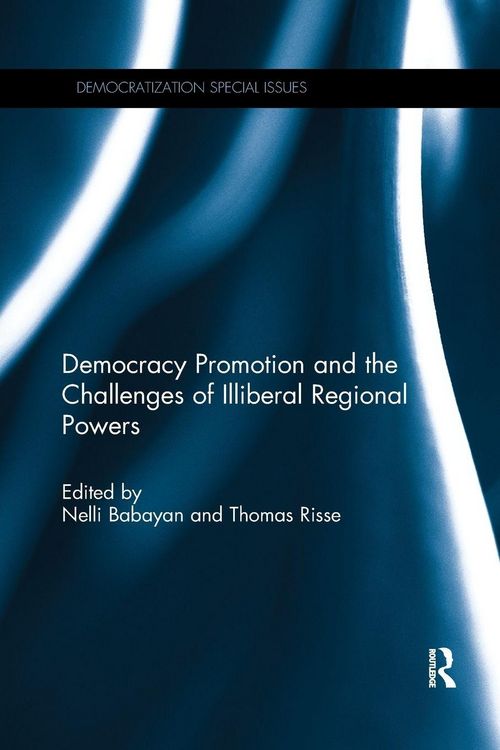Democracy Promotion and the Challenges of Illiberal Regional Powers
-
- Hardcover
- Taschenbuch ausgewählt
- eBook
-
Sprache:Englisch
79,99 €
inkl. MwSt,
Lieferung nach Hause
Beschreibung
Details
Einband
Taschenbuch
Erscheinungsdatum
03.01.2019
Herausgeber
Babayan Nelli + weitereVerlag
Taylor and FrancisSeitenzahl
168
Maße (L/B/H)
23,4/15,6/1 cm
Gewicht
330 g
Sprache
Englisch
ISBN
978-1-138-39174-1
This book examines Western efforts at democracy promotion, reactions by illiberal challengers and regional powers, and political and societal conditions in target states. It is argued that Western powers are not unequivocally committed to the promotion of democracy and human rights, while non-democratic regional powers cannot simply be described as "autocracy supporters". This volume examines in detail the challenges by three illiberal regional powers — China, Russia and Saudi Arabia — to Western (US and EU) efforts at democracy promotion. The contributions specifically analyze their actions in Ethiopia and Angola in the case of China, Georgia and Ukraine in the case of Russia, and Tunisia in the case of Saudi Arabia. Democratic powers such as the US or the EU usually prefer stability over human rights and democracy. If democratic movements threaten stability in a region, neither the US nor the EU supports them. As to illiberal powers, they are generally not that different from their democratic counterparts. They also prefer stability over turmoil. Neither Russia nor China nor Saudi Arabia explicitly promote autocracy. Instead, they seek to suppress democratic movements in their periphery the minute these groups threaten their security interests or are perceived to endanger their regime survival. This was previously published as a special issue of Democratization.
Unsere Kundinnen und Kunden meinen
Verfassen Sie die erste Bewertung zu diesem Artikel
Helfen Sie anderen Kund*innen durch Ihre Meinung
Kurze Frage zu unserer Seite
Vielen Dank für dein Feedback
Wir nutzen dein Feedback, um unsere Produktseiten zu verbessern. Bitte habe Verständnis, dass wir dir keine Rückmeldung geben können. Falls du Kontakt mit uns aufnehmen möchtest, kannst du dich aber gerne an unseren Kund*innenservice wenden.
zum Kundenservice
